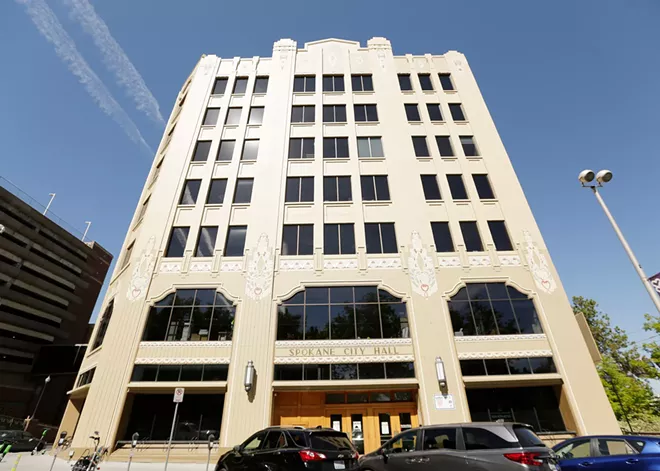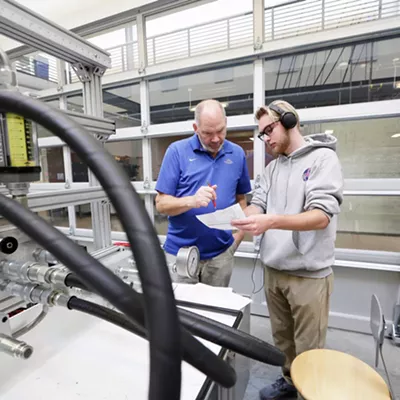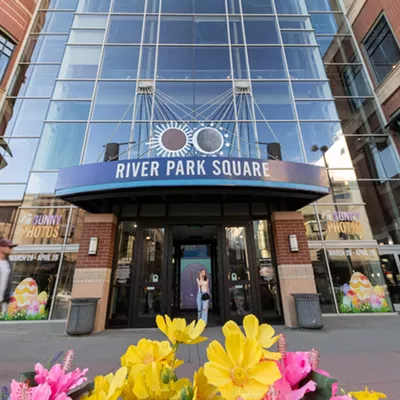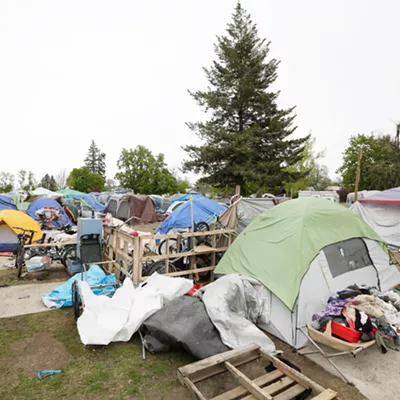Spokane has a massive structural budget deficit of roughly $50 million across all accounts. To prevent things from getting this bad again, the city is switching to a biennial budget cycle. The city previously operated on an annual budget cycle. The goal is to force city leaders away from the unsustainable short-term fixes — such as using one-time funds for ongoing expenses — that contributed to the current deficit. "We need to start thinking long term, we have to start thinking sustainably," said Spokane City Council member Michael Cathcart, who listed switching to a biennial budget as one of his top priorities at the start of this year. Mayor Lisa Brown began advocating for the idea more recently. Most cities and towns in Washington operate on an annual budget, but two-year budget cycles aren't unprecedented: The state Legislature operates on a two-year cycle, and so do Tacoma, Ellensburg, Kent, Bellevue, Pullman and many other cities. The City Council voted 6-1 to approve the change on Monday. Council member Jonathan Bingle said he supported the change, but still voted no because he didn't like passing it as an emergency ordinance. (NATE SANFORD)
TOURISTS RETURN
According to the Economic Impact of Tourism report recently released by Visit Spokane, 9.77 million people visited Spokane in 2023. It was the first year since the pandemic that the city hosted more visitors than 2019, when 9.76 million people traveled to Spokane. The report says that visitors alone spent about $1.5 billion last year, resulting in a total economic impact of almost $2.3 billion — that includes not just what was spent on food, recreation, transportation and lodging, but the indirect effect those dollars had in the supply chain. Visitors spent about $414 million on eating and drinking, about $316 million on shopping, and about $127 million on recreation and entertainment. That's about 8% more food and beverage spending, but less shopping and recreation spending than in 2019. Though the report didn't account for inflation, it may be an important factor to consider. According to the U.S. Inflation Calculator, the cumulative rate of inflation between 2019 and 2023 was 19.2%. Since tourist spending overall only increased by about 6%, take-home profits from Spokane tourism last year were probably less than those in 2019. (ELIZA BILLINGHAM)
CLIMATE COLLEGES
Last year, the International Panel on Climate Change determined that the globe's greenhouse gas emissions need to be halved by 2030 to prevent an irreparably warmed climate. Experts say to do that, we need to rely on Indigenous knowledge to implement locally appropriate solutions. To do that in Washington state, U.S. Sens. Maria Cantwell and Patty Murray and U.S. Rep. Derek Kilmer, all Washington Democrats, announced earlier this month that they secured $9.3 million in funding for six of the state's community colleges, including Spokane Community College. The money will go toward the state's Tribal Stewards Program. The program will bolster the colleges' existing natural resources programs by partnering with local tribes — the Confederated Colville Tribes for SCC — to develop curriculum based on an Indigenous viewpoint of climate stewardship. The grant was awarded by the National Oceanic and Atmospheric Administration with funds from the 2022 Inflation Reduction Act. "Tribal communities are on the front lines of the climate crisis, so it's important that we do more to help Washington state's Tribes build more resilient communities," Murray said in a statement. (COLTON RASANEN) ♦



















